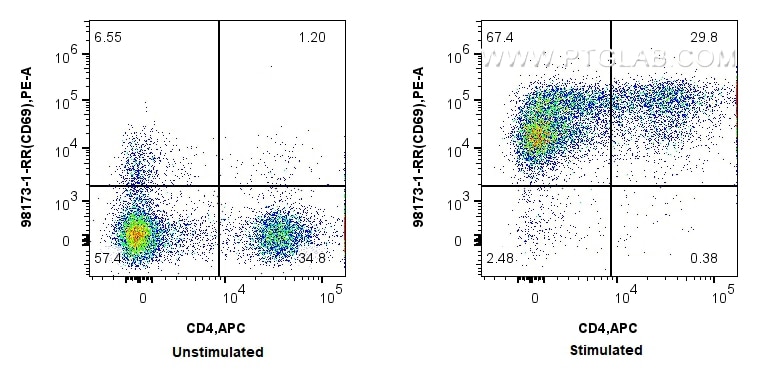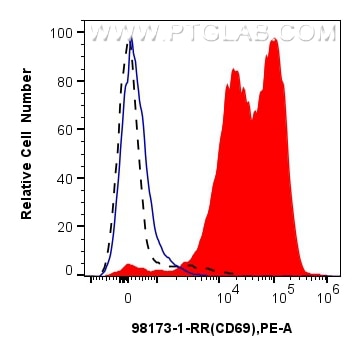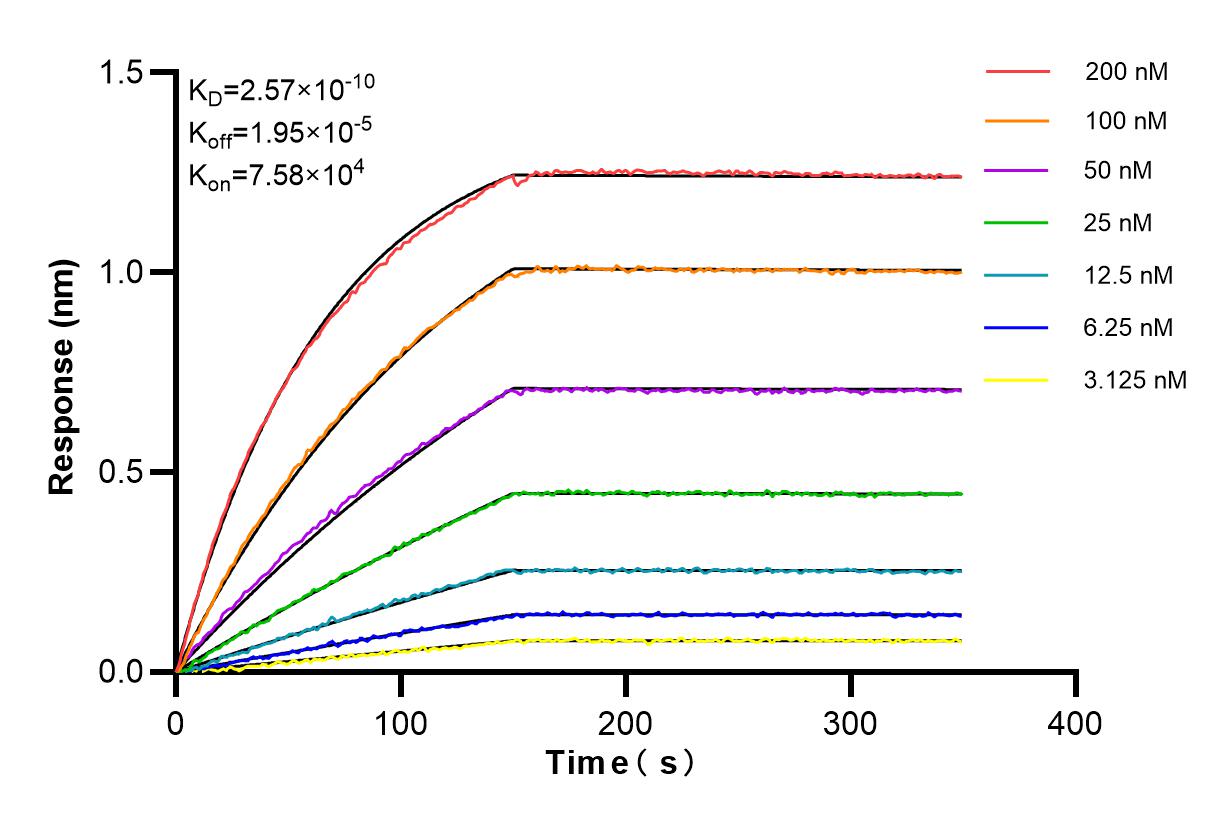Validation Data Gallery
Tested Applications
| Positive FC detected in | PHA treated human PBMCs |
Recommended dilution
| Application | Dilution |
|---|---|
| This reagent has been tested for flow cytometric analysis. It is recommended that this reagent should be titrated in each testing system to obtain optimal results. | |
| Sample-dependent, Check data in validation data gallery. | |
Product Information
98173-1-RR targets CD69 in FC applications and shows reactivity with human samples.
| Tested Reactivity | human |
| Host / Isotype | Rabbit / IgG |
| Class | Recombinant |
| Type | Antibody |
| Immunogen | FusionProtein 相同性解析による交差性が予測される生物種 |
| Full Name | CD69 molecule |
| Calculated molecular weight | 23 kDa |
| GenBank accession number | NM_001781.2 |
| Gene Symbol | CD69 |
| Gene ID (NCBI) | 969 |
| RRID | AB_3672316 |
| Conjugate | Unconjugated |
| Form | Liquid |
| Purification Method | Protein A purfication |
| UNIPROT ID | Q07108 |
| Storage Buffer | PBS with 0.09% sodium azide , pH 7.3 |
| Storage Conditions | Store at 2 - 8°C. Stable for one year after shipment. |
Background Information
CD69, also known as AIM, EA-1, Leu-23, and MLR3, is a type II transmembrane glycoprotein that belongs to the C-type lectin superfamily (PMID: 8340758; 7804122). CD69 is constitutively expressed by mature thymocytes, platelets, several subsets of tissue resident immune cells (including resident memory T cells and gamma delta T cells), and is inducibly expressed by activated T cells, B cells, natural killer (NK) cells, monocytes, neutrophils (PMID: 8100776; 28475283). CD69 has been identified as an early activation marker of lymphocytes and is commonly used as a marker of activated lymphocytes and NK cells (PMID: 28475283; 25759842). It is involved in the regulation of immune responses (PMID: 15745855).
Protocols
| Product Specific Protocols | |
|---|---|
| FC protocol for CD69 antibody 98173-1-RR | Download protocol |
| Standard Protocols | |
|---|---|
| Click here to view our Standard Protocols |


